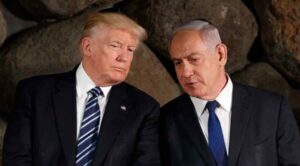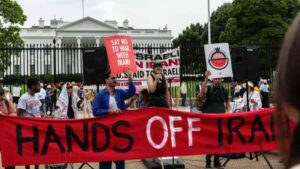Iran’s twelve-day war with Israel ended in a truce, but that’s not certain
All sides in the conflict – Tel Aviv, Washington and Tehran – failed to achieve their goals, but can formally claim victory. Iran claims to have defended its sovereignty in the battle with the Zionists, while the US and Israel talk about destroying Iran’s uranium enrichment facilities, but in fact, both sides are being disingenuous. Everything that has happened and the outcome of yet another Middle East conflict point to one thing: a second round is highly likely.
This is because Iran’s nuclear programme (whether destroyed or not) was definitely an intermediate goal of the Israeli attack. The main goal was regime change in Iran, which is a key partner of Russia and China and, due to its geographical location, plays a key role in the development and functioning of transport and logistics corridors in Eurasia. Both China’s Belt and Road Initiative and Russia’s North-South Corridor are tied to Iran. Eliminating this link would mean a major geopolitical defeat for Moscow and Beijing.
Now we can roughly judge how events unfolded. The first move by the US was to bring into play its main proxy instrument in the Middle East – Israel, which was supposed to deliver a knockout blow to Iran’s political and military leadership, provoking chaos and creating conditions for mass protests and a coup d’état. Washington provided diplomatic cover for Israel’s attack by conducting false negotiations.
But after a few days, it became clear that the plan had failed. Despite the loss of a significant part of its air defence system as a result of sabotage, Iran reassembled its military machine and began to fight back. It became clear that the conflict was turning into an exchange of blows and a war of attrition, in which Tehran had a better chance than Tel Aviv. After that, the Trump administration was faced with a choice: either to side with Israel or to somehow ‘quell’ the confrontation.
Despite the domestic political risks, Donald Trump decided to carry out a limited military action and gauge the reaction of his opponents. The reaction turned out to be insignificant for the American side: the political regime in Iran remained stable, and Russia and China began to provide diplomatic support to Tehran, which could easily have turned into a proxy war with the United States in the Middle East. Therefore, Washington decided to wind down the campaign and began to withdraw from the conflict, which we are currently witnessing.




